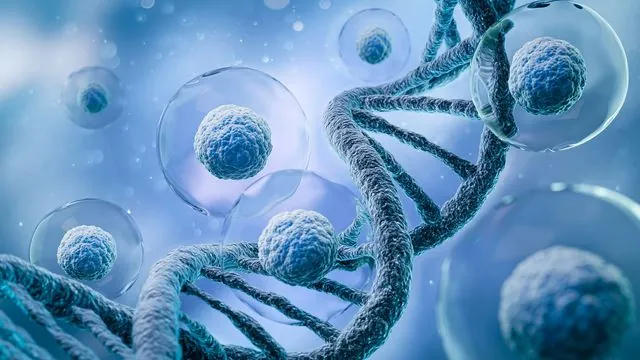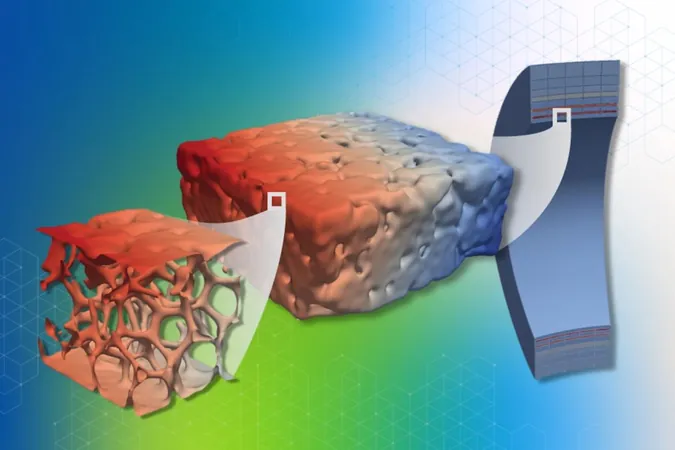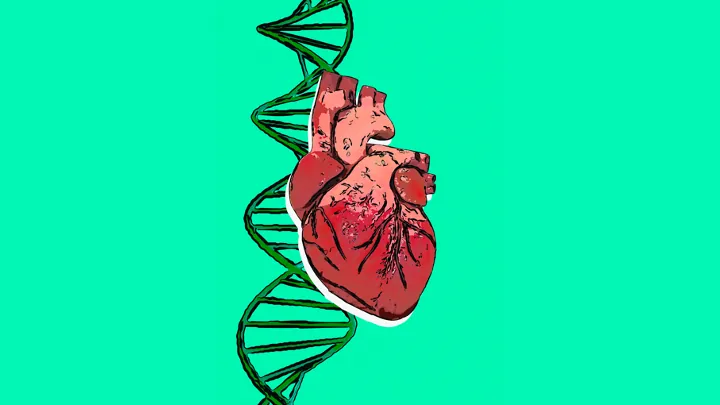
Unlocking the Secrets of Inherited Cancer Mutations: A Game-Changer for Tumor Growth Insights
2025-04-15
Author: Arjun
Are Our Genes Really to Blame for Cancer?
In a groundbreaking study from Washington University School of Medicine in St. Louis, researchers are shifting the focus from traditional tumor mutations to the inherited genetic variants lurking in our DNA. This research marks a crucial exploration into how these inherited mutations, often present from birth, can predispose individuals to various types of cancer throughout their lives.
The Study: A Deep Dive Into the Inherited Genome
The research team analyzed the genetic makeup of over 1,000 cancer patients, uncovering how germline variants—mutations passed down through generations—can lead to malfunctioning proteins. These proteins are essential for numerous physiological functions, and when they go awry, they may set the stage for cancer. This innovative approach could revolutionize how we assess inherited cancer risk and develop preventative measures.
A Milestone in Cancer Research
This study, published in the journal Cell, is a pivotal contribution to the Clinical Proteomic Tumor Analysis Consortium. The consortium is backed by the National Cancer Institute, striving to illuminate the roles cellular proteins play in cancer. While past research has heavily focused on mutations that tumors acquire during a person’s life, this study highlights the often-overlooked inherited variants.
Understanding Personal Cancer Risks
Certain inherited mutations, like those in the BRCA genes notorious for heightening breast cancer risk, can empower medical professionals to offer tailored strategies for risk reduction. These strategies might include enhanced screenings, preventive treatments, and even surgeries. By exploring the genomes of healthy cells from cancer patients, this recent study sheds light on germline mutations’ significant role in cancer risk assessment.
A Closer Look at the Findings
Led by first author Fernanda Martins Rodrigues, PhD, the team identified 119 rare and potentially cancer-causing genetic variants among 1,064 individuals across ten different cancer types. They also discovered common variants that might not individually trigger cancer but could collectively escalate the risk by affecting essential proteins involved in cancer pathways.
Polygenic Risk Scores: A New Measure of Cancer Risk
The researchers introduced the concept of polygenic risk scores, providing a cumulative estimate of cancer risk based on inherited mutations. For example, patients suffering from aggressive cancers like glioblastoma and pancreatic cancer exhibited significantly higher polygenic risk scores than those with other malignancies or healthy individuals. Thus, an accumulation of certain inherited variants can greatly amplify cancer risk.
Unraveling Protein Modifications: The Devil is in the Details
This innovative study also explored how inherited mutations could lead to structural alterations in proteins post-assembly, significantly affecting their functionality. Such changes include adding small molecular tags, which determine how and when proteins are active. This precision in understanding genetic factors influencing cancer risk could ultimately refine polygenic risk scores.
A Bright Future in Cancer Prediction and Prevention
By meticulously matching germline mutations to their protein consequences, the study advances cancer research, shining a light on inherited genetic factors that could potentially enhance cancer risk predictions. This groundbreaking work not only deepens our understanding of cancer biology but also paves the way for more accurate risk assessment and potentially transformative strategies for cancer prevention.




 Brasil (PT)
Brasil (PT)
 Canada (EN)
Canada (EN)
 Chile (ES)
Chile (ES)
 Česko (CS)
Česko (CS)
 대한민국 (KO)
대한민국 (KO)
 España (ES)
España (ES)
 France (FR)
France (FR)
 Hong Kong (EN)
Hong Kong (EN)
 Italia (IT)
Italia (IT)
 日本 (JA)
日本 (JA)
 Magyarország (HU)
Magyarország (HU)
 Norge (NO)
Norge (NO)
 Polska (PL)
Polska (PL)
 Schweiz (DE)
Schweiz (DE)
 Singapore (EN)
Singapore (EN)
 Sverige (SV)
Sverige (SV)
 Suomi (FI)
Suomi (FI)
 Türkiye (TR)
Türkiye (TR)
 الإمارات العربية المتحدة (AR)
الإمارات العربية المتحدة (AR)